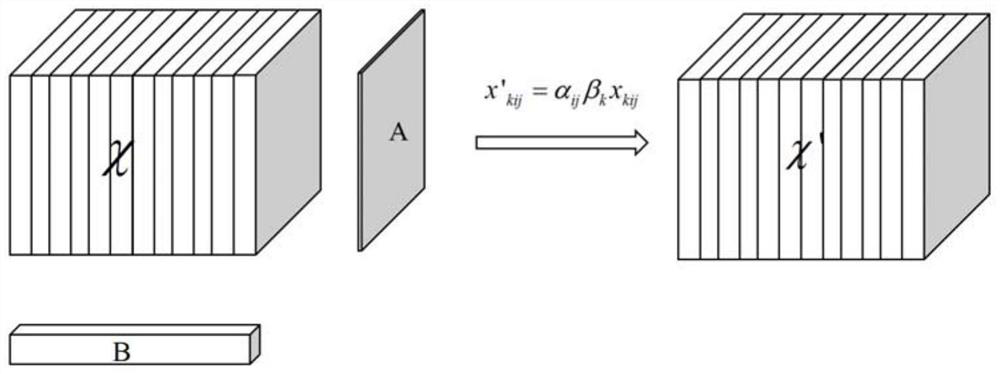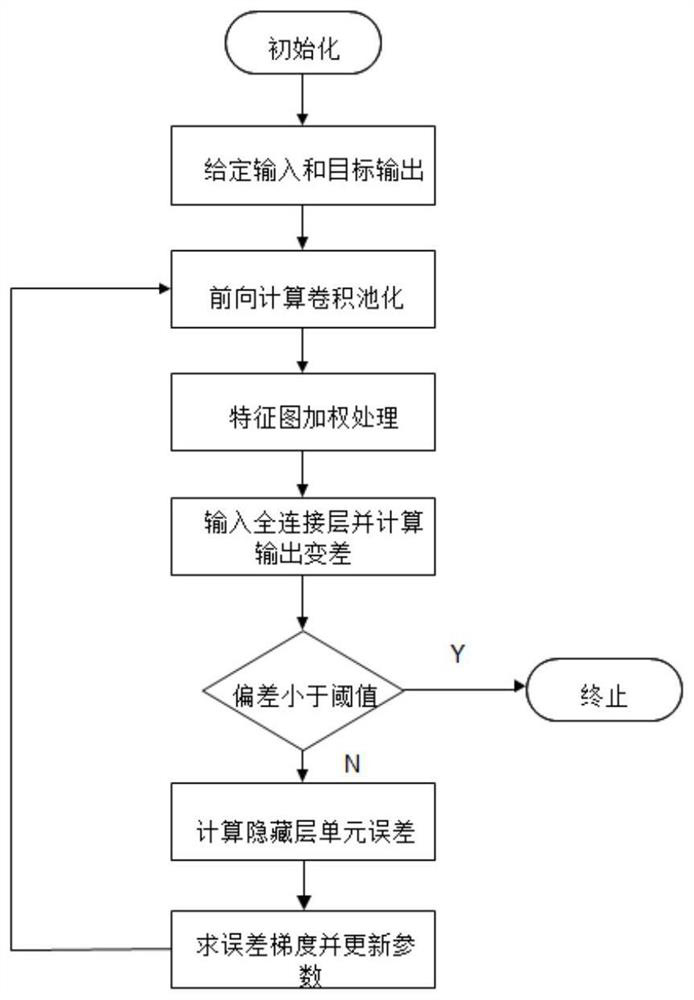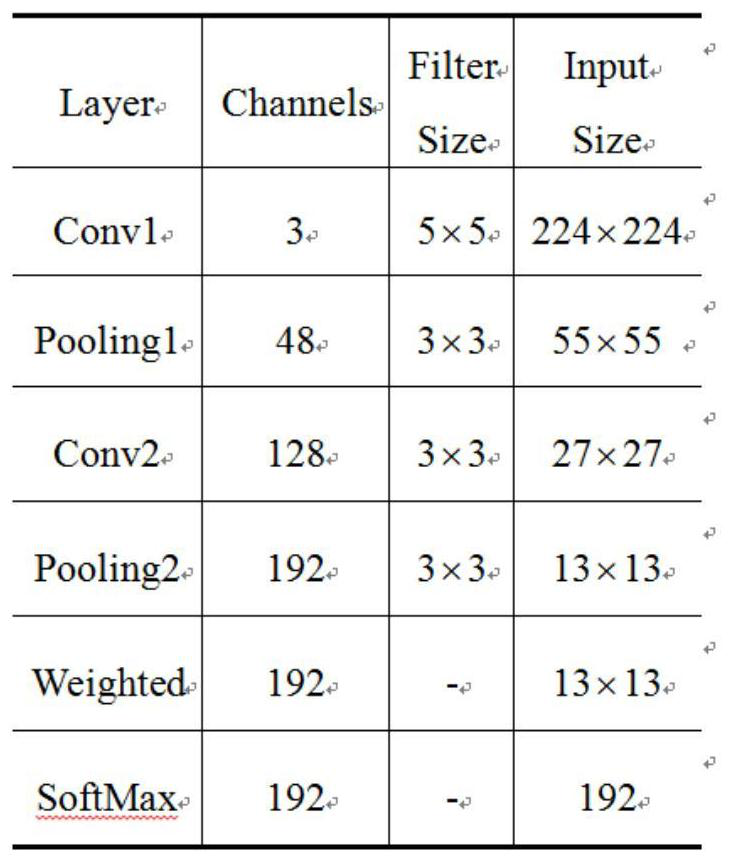Feature extraction method of underwater target based on convolutional neural network
A convolutional neural network and underwater target technology, applied in the field of underwater target feature extraction, can solve problems such as displacement, loss of spatial information, and deformation of observed targets
- Summary
- Abstract
- Description
- Claims
- Application Information
AI Technical Summary
Problems solved by technology
Method used
Image
Examples
Embodiment Construction
[0090] The following examples describe the present invention in more detail.
[0091] The time-frequency domain conversion is performed on the original noise signal to generate a LoFAR spectrogram that can represent time-frequency domain information. The specific processing process is:
[0092] 1. Define S(n) as the sampling sequence of the original radiation noise signal, divide it into 25 continuous parts, and set 25 sampling points for each part. Among them, 25 consecutive parts are allowed to have overlapping parts of data, and the degree of crossover is set to 50%.
[0093] 2. Define M j (n) is the sampling sample of the j-th segment signal, and it is normalized and centered, the purpose of which is to make the amplitude of the radiation noise signal evenly distributed in time and achieve DC removal so that the mean value of the sample is zero.
[0094] Normalization processing:
[0095]
[0096] In order to facilitate the calculation of the Fourier transform, the ...
PUM
 Login to View More
Login to View More Abstract
Description
Claims
Application Information
 Login to View More
Login to View More - Generate Ideas
- Intellectual Property
- Life Sciences
- Materials
- Tech Scout
- Unparalleled Data Quality
- Higher Quality Content
- 60% Fewer Hallucinations
Browse by: Latest US Patents, China's latest patents, Technical Efficacy Thesaurus, Application Domain, Technology Topic, Popular Technical Reports.
© 2025 PatSnap. All rights reserved.Legal|Privacy policy|Modern Slavery Act Transparency Statement|Sitemap|About US| Contact US: help@patsnap.com



